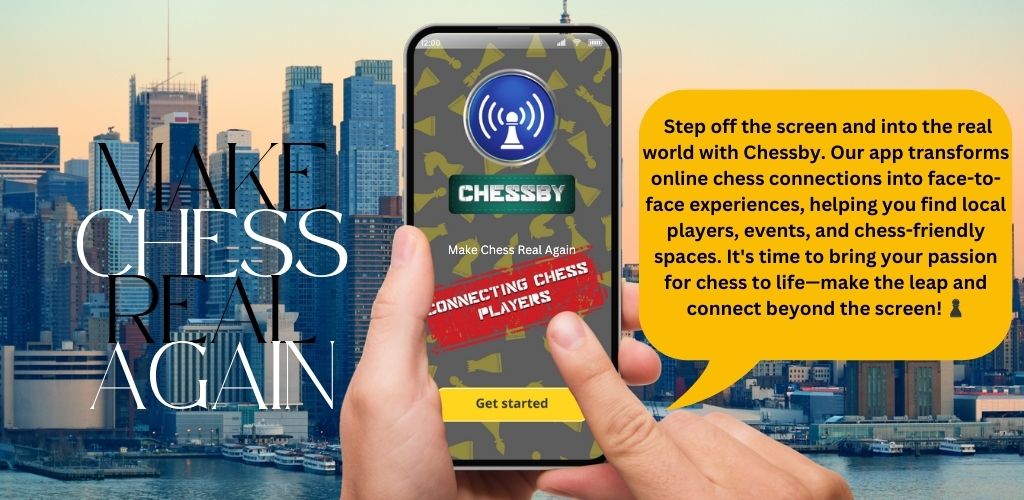
TTrash Talk in Chess: A Fine Line Between Fun and Disrespect
Chess has long been known as a game of intellect, strategy, and precision. However, like many competitive games, it has also seen its fair share of trash talk, whether in casual online games or high-stakes tournaments. Trash talking—an art form that blends psychological warfare with a sprinkle of humor—can add an entertaining dimension to chess. But, as with everything in the game, it comes with its own set of rules. In this blog, we’ll explore the world of trash talk in chess, its origins, its effects, and when it crosses the line.

The Origins of Trash Talk in Chess
While chess is centuries old, the concept of trash talk in the game is a more modern phenomenon, especially popular in the online chess community. Traditionally, chess has been seen as a respectful, cerebral game, with players maintaining composure and decorum. However, over time, and particularly with the rise of online platforms like Chess.com and Lichess, players have begun to embrace a more casual and sometimes combative style.
Notably, trash talk has even been documented in over-the-board games. Legendary players like Bobby Fischer and Garry Kasparov were known for their psychological tactics, though these often manifested in their play more than their words. In contrast, modern players like Hikaru Nakamura and Eric Rosen have embraced playful banter in their streams, making chess more engaging for fans.
The Appeal of Trash Talk
Trash talking in chess is typically seen in the form of quick quips, bold taunts, or sarcastic remarks during the game. In an environment where the mind is the primary weapon, a clever verbal jab can be just as disorienting as a well-executed checkmate. The appeal lies in its ability to unnerve an opponent and even disrupt their concentration. For instance, players like Levy Rozman (GothamChess) frequently add humorous commentary to their games, making chess entertaining for viewers worldwide.
The Psychology Behind It
At its core, trash talk can be a psychological tactic. The idea is to play mind games, get under the opponent’s skin, and create an environment where they may make mistakes due to the distraction. Players can use humor, playful banter, or bold statements to lower their opponent’s confidence, making them second-guess their strategy. This is especially effective in fast formats like blitz or bullet games, where quick thinking is essential. Check out this video of blitz banter between Magnus Carlsen and Hikaru Nakamura for an example of high-level players keeping things lighthearted yet competitive.
When Does It Cross the Line?
While some trash talk is playful and fun, it can easily slip into disrespect if taken too far. Chess is a game of respect and dignity, and trash talking that insults, belittles, or harasses an opponent crosses the line into unsportsmanlike behavior. Personal attacks, offensive language, or demeaning comments have no place in a game that thrives on mutual respect.
Organizations like FIDE and online platforms enforce codes of conduct to ensure fair play and respectful interactions. Players who violate these rules may face penalties or bans.
The Modern Online Chess Scene
With platforms like Chess.com and Lichess, online chess has made trash talking more accessible than ever. Players can chat in real-time, either in private messages or public chats, and some enjoy using this feature to engage in lighthearted banter. However, it’s important to note that online anonymity can sometimes embolden players to cross boundaries they wouldn’t dare in person. Moderators and administrators of these platforms often have policies in place to keep the environment positive, banning or silencing players who engage in harmful behavior.
For those who enjoy trash talk responsibly, many streamers and content creators regularly host interactive sessions. Check out channels like GothamChess or Anna Cramling for entertaining commentary and friendly banter during games.

Conclusion
Trash talk in chess can add a layer of excitement and intensity to the game, but it should always be approached with caution. It’s a fine line between fun and disrespect, and players should be mindful of maintaining the integrity of the game. As long as it’s lighthearted and playful, a little trash talk can be a welcome addition to the chessboard.
Just remember, in chess, your moves should speak louder than your words.

Chessby: Connecting Chess Enthusiasts Worldwide
Chessby is a unique platform designed to bridge the gap between the digital and physical worlds of chess. Its main purpose is to connect chess enthusiasts by helping them find local places, events, and players for in-person games. Whether you’re a casual player looking for a friendly match at a nearby café or a competitive player seeking tournaments, Chessby provides the tools to build meaningful connections through chess.
